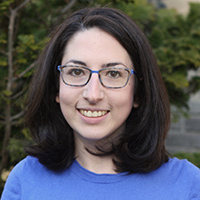

Email: rudinger@jhu.edu
Position: PhD Candidate
Current Institution: Johns Hopkins University
Abstract: Neural Models for Decompositional Semantics
Central to building systems that can understand and perform high-level reasoning about natural language texts is the ability to map surface level linguistic expressions (e.g., a sentence) to deeper semantic representations that can support inference. To train a system to perform such a mapping with modern statistical techniques requires both a designated semantic ontology and sufficient training data to fit the statistical models. Traditionally, these ontologies contain large numbers of exclusive categorical labels that require experts to annotate. Our work on decompositional semantics aims to replace these cumbersome ontologies with bundles of atomic semantic features that can be annotated by posing simple “commonsensical” questions to non-expert crowdsource workers. Using this approach, we have developed several datasets targeting semantic tasks such as Event Factuality Prediction (EFP) and Semantic (Proto-) Role Labeling (SPRL). EFP is the task of determining whether an event mentioned in text happened or not. For exahmple, it entails processing a sentence such as “Pat watered the plants” or “Pat failed to water the plants” and answering the question “Did the watering happen?” SPRL involves predicting simple properties that distinguish participants in an event. For example, in processing a sentence such as “The cat ate the rat,” we’d aim to predict which participant (the cat or the rat) “acted with volition” (the cat), “changed state” (the rat), and so on. For both tasks, we have developed neural models that achieve state-of-the-art performance in predicting the target semantic labels. These models make use of bidirectional Recurrent Neural Networks (RNNs) with both linear and tree structures. We employ multi-task training strategies, i.e., simultaneously training the networks on closely related semantic resources, to yield further gains. Through targeted analysis, we can investigate the systematic improvements and errors these models make.
Bio:
Rachel Rudinger is a PhD candidate in computer science at Johns Hopkins University in the Center for Language and Speech Processing, working with Benjamin Van Durme. She received a bachelor’s degree in computer science from Yale University in 2013. Her research interests in the area of natural language processing include common-sense reasoning, knowledge acquisition from text, and event semantics. She is a member of the Decompositional Semantics Initiative, and her most recent work has focused on developing state-of-the-art neural models for fine-grained labeling of semantic properties in text. Rachel interned at the Allen Institute for Artificial Intelligence and received the NSF Graduate Research Fellowship and the JHU Whiting School of Engineering Fellowship.

